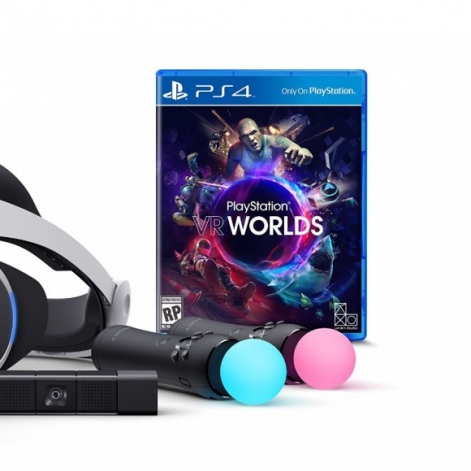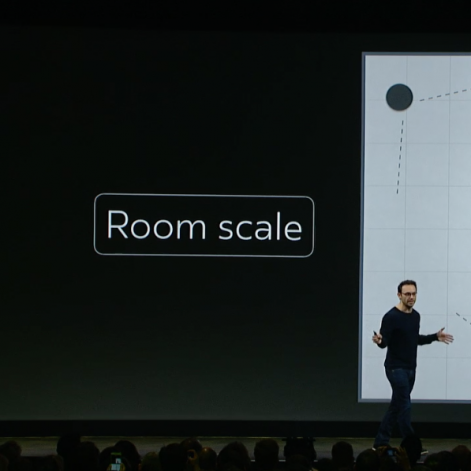We ask our industry panel - the brightest and sharpest VR professionals from around the world - one question about the VR industry, business, technology or trending stories every week. Here’s what they think about the proliferation of VR platforms.
Rift, Vive, PS VR, Gear VR, Cardboard, Daydream... and now Microsoft! Will the various platform holders ultimately fragment the market into a Betamax/VHS standoff, or is a competitive marketplace good for advancing technology - and good for consumers too?
Simon Barratt, Director at Barog Game Labs
“I believe a competitive marketplace is needed at this stage in VR/AR growth and consumer adoption. Although fragmentation can be a pain from a developer point of view, it does allow the market to find the sweet spot in terms of desired features and pricing and at this stage, most developers can be adaptable enough.
“My biggest concern as a designer and a developer is the controller variants and having to make too many sacrifices in terms of the experience; there’s certainly a battle between making sure you support the largest user base possible and also doing justice to the original intent of your game’s control system.”
Patrick O’Luanaigh, CEO at nDreams
“A variety of VR headsets is a good thing initially; the more headsets there are from major companies, the more it helps raise the profile of VR. And the amount of competition encourages the medium to progress rapidly from a technology point of view.
“However, I do believe that, in the West at least, the headset market will end up with just a handful of headsets. PlayStation VR is always going to be the headset of choice for PS4 owners – no other headset works on the PlayStation. For PC gamers, I suspect there will be one long-term winner; either Oculus or HTC. And in the mobile space, I think there is a good chance that Google’s Daydream will evolve (like Android) to be the dominant mobile VR platform.”

Thomas Ormond, Digital Entertainment and VR/AR business Advisor
Plurality always helps a market to grow and reach the mainstream.Thomas Ormond
“Almost all of these devices have their own functionality and address a specific market segment. Competition is definitely best for consumers; they must have a choice of products to experiment with instead of one being imposed that doesn’t match to their expectations. Plurality always helps a market to grow and reach the mainstream.
“We can’t compare VR too closely with the Betamax/VHS battle because each device offers a different quality of user experience and quality of content. Middleware enables content providers to easily adapt their creation to several devices, so this isn’t a technological barrier like it is in traditional videogame development.”
Jon Hibbins, Director & Producer at Psytec Games
“There’ll be some winners and losers, but they’re all winners right now. I think it’s healthy competition. They’re all doing well, they’re selling products and we’re selling games on their platforms. As a person that wants VR to take off and develop into a mainstream thing, that’s great because they’re gaining traction. We’re certainly seeing good traction in PlayStation – people are loving it!”
Bjarne Rene, CEO at Emberlight VR
“A competitive marketplace for VR hardware is mostly a good thing for consumers. As long as the major game engines and distribution platforms support all the hardware, the content will be available. With that in place, the division lines will be according to the mechanical capabilities of the HMD and controllers. Does it have 6-degrees-of-freedom or only 3? Does it have high quality motion controllers? Does it have room scale?
“On the high end, it’s great that the Rift and Vive are getting a bit closer to each other´s capabilities with the Rift getting room scale and Vive getting a motion controller that works better for hand presence. It looks like Microsoft will sit in the middle ground along with the Rift without motion controllers. Daydream with its motion controller could get a leg up on Gear VR. Then there is, of course, Cardboard...”

Dean Johnson, Head of Innovation at Brandwidth
“The platforms already exist (PC vs Mac, iOS vs Android vs Windows vs PS4) so we’ve reached peak fragmentation. Unlike Blackberry, these won’t go away and the focus is for device manufacturers and platform owners to up their game and keep us all locked into their ecosystem for all the right reasons.
“Although the competition is healthy, the confusion will arise from conflicting terminology – if one platform is referring to VR, AR and MR and the experiences that surround them as different things, that’s when consumers will potentially walk away from this amazing new opportunity.”
Jonathan Wagstaff, Country Manager - UK & IE at CONTEXT
VR games need to be more than just quirky experiences if we want the hardware to take flight.Jonathan Wagstaff
“Ultimately, a lot will come down to content. It doesn't matter how good your hardware is compared to your competitors if there's a lack of decent software. Oculus has launched a series of fantastic feature-length games with 25h+ of story-driven gameplay, but from what I've seen of the Vive so far, a lot of the software is fun but ultimately simple and reminds me a lot of early Wii titles.
“My worry for PS VR and Vive is that they could end up being the next Wii; everyone buys one, then puts it in the cupboard after five minutes without a strong game library.
“Oculus obviously has a huge advantage given the Facebook warchest of funding, which means they have the cash to develop big games without worrying about ROI. This is much more of a risk when you're more beholden to independent developers. Many in the industry are touting how indie friendly Vive can be, but nobody’s talking about the disadvantages. VR games need to be more than just quirky experiences if we want the hardware to take flight.”













